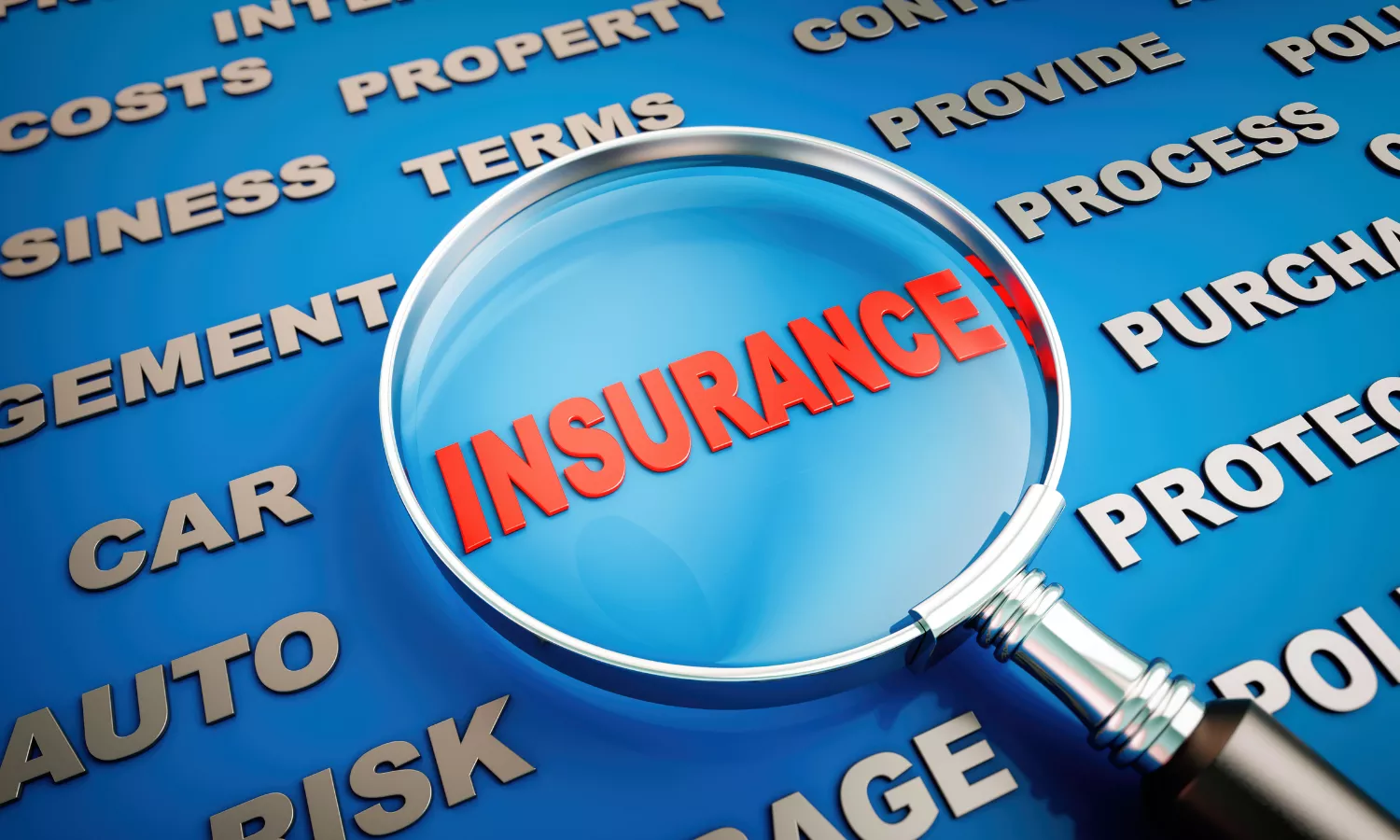Owning a boat can be a source of great pleasure and adventure. Whether you use it for fishing, cruising, or water sports, your boat is a valuable asset that requires protection. Comprehensive boat insurance is designed to offer that protection by covering a wide range of risks and potential losses. It provides boat owners with peace of mind, knowing that they are financially safeguarded against various incidents that could occur on the water or while the boat is stored. Understanding what comprehensive boat insurance covers is essential for any boat owner to make informed decisions about their insurance needs.
Physical Damage Coverage
1. Collision Damage
One of the main aspects of comprehensive boat insurance is coverage for collision damage. If your boat collides with another boat, a dock, a submerged object like a rock or a log, or any other stationary or moving object, the insurance will typically cover the cost of repairs. For example, if you’re out on a boating trip and accidentally run into another vessel, the insurance company will pay for the damages to both boats, depending on the policy terms and who is at fault. This includes not only the hull damage but also any damage to the engine, propellers, steering systems, and other essential components. If the collision is severe enough that the boat is considered a total loss, the insurance will usually reimburse you for the boat’s actual cash value or its agreed-upon value, as specified in the policy.
2. Damage from Non-Collision Incidents
Comprehensive boat insurance also covers damage from non-collision incidents. This can include damage caused by fire, lightning, explosions, theft, vandalism, and natural disasters. For instance, if a fire breaks out on your boat due to an electrical malfunction, the insurance will cover the cost of repairing or replacing the damaged parts and any necessary restoration work. In the case of lightning striking your boat and causing damage to the electronics or the mast, the policy will take care of the repair or replacement costs. If your boat is stolen from its mooring or storage location, the insurance company will reimburse you for the loss, provided you report it promptly and meet the policy requirements. Vandalism, such as someone spray-painting or causing intentional damage to your boat, is also covered. And when it comes to natural disasters like hurricanes, tornadoes, or floods, if your boat is damaged as a result, the insurance will cover the repairs or replacement, subject to any applicable deductibles and policy limits.
Liability Coverage
1. Bodily Injury Liability
Liability coverage is a crucial part of comprehensive boat insurance. Bodily injury liability protects you if you are at fault in an accident that causes injury to another person. For example, if you’re operating your boat and accidentally hit a swimmer, and the swimmer sustains injuries and requires medical treatment, hospitalization, or even long-term care, your boat insurance’s bodily injury liability coverage will pay for the injured person’s medical expenses, lost wages if they are unable to work due to the injury, and any legal fees if they decide to sue you. The coverage amount is usually specified in the policy, and it’s important to have sufficient coverage to protect your assets in case of a serious accident.
2. Property Damage Liability
In addition to bodily injury liability, property damage liability is also included. This covers damage you cause to another person’s property while operating your boat. If you crash into another boat and damage it, or if you accidentally damage a dock or a waterfront structure, your property damage liability coverage will pay for the repairs or replacement of the damaged property. For instance, if your boat veers off course and crashes into a marina’s fuel dock, causing damage to the dock and the fueling equipment, the insurance will cover the cost of fixing the dock and replacing the damaged equipment, up to the policy limit.
3. Guest Passenger Liability
Many comprehensive boat insurance policies also offer guest passenger liability coverage. This protects you if a guest on your boat is injured while on board. For example, if a friend slips and falls on your boat and breaks a leg, the guest passenger liability coverage will pay for their medical expenses and any related costs. It’s important to note that this coverage only applies to non-crew members who are on the boat as guests and not involved in operating the vessel.
Medical Payments Coverage
Medical payments coverage in boat insurance is designed to pay for the medical expenses of you and your passengers, regardless of who is at fault in an accident. For example, if you or one of your passengers is injured in a boating accident, the medical payments coverage will cover the cost of immediate medical treatment, such as ambulance rides, emergency room visits, and any necessary surgeries or hospital stays. This coverage can also include rehabilitation costs if needed. It provides a quick source of funds to cover medical bills without having to wait for a determination of fault in the accident. Even if the accident was caused by another boat and you have the option to seek compensation from their insurance, your medical payments coverage can still be used to pay for the initial medical expenses and then be reimbursed later if appropriate.
Uninsured/Underinsured Boater Coverage
There is always a risk of being involved in an accident with a boater who either has no insurance or has insufficient insurance to cover the damages. Uninsured/underinsured boater coverage in comprehensive boat insurance protects you in such situations. If you are hit by an uninsured boater and suffer damages to your boat or injuries to yourself or your passengers, this coverage will step in to pay for the losses. For example, if an uninsured boat crashes into yours and causes significant damage to your vessel and injuries to your passengers, your uninsured/underinsured boater coverage will cover the cost of repairs and medical expenses, up to the policy limit. It acts as a safety net to ensure that you are not left with financial losses due to the lack of insurance on the part of another boater.
Towing and Assistance Coverage
Boats can break down or get stranded on the water, and towing and assistance coverage is there to help. If your boat experiences engine failure, runs out of fuel, or gets stuck in shallow water, the insurance will cover the cost of towing it to a safe location or a repair facility. For instance, if you’re out in the middle of a lake and your engine suddenly stops working, you can call for assistance, and the towing and assistance coverage will pay for the tow boat to come and bring you back to shore or to a marina where the problem can be fixed. This coverage also includes other forms of assistance, such as jump-starting a dead battery or providing fuel if you run out. It gives boat owners the peace of mind that they won’t be stranded on the water without a way to get help.
Personal Effects Coverage
Your boat likely has personal effects on board, such as fishing gear, water sports equipment, clothing, and electronics. Comprehensive boat insurance often includes personal effects coverage. If these items are lost, stolen, or damaged while on the boat, the insurance will cover their replacement or repair. For example, if your expensive fishing rods and reels are stolen from your boat while it’s moored overnight, the insurance will reimburse you for the cost of replacing them. Or if your boat is caught in a storm and your clothing and electronics get wet and damaged, the personal effects coverage will pay for their restoration or replacement, up to a certain limit specified in the policy.
Salvage and Wreck Removal Coverage
In the event that your boat sinks or is severely damaged and needs to be salvaged or removed from the water, salvage and wreck removal coverage comes into play. Salvaging a sunken or damaged boat can be a costly and complex process. This coverage pays for the cost of hiring a professional salvage company to retrieve the boat. For example, if your boat sinks in a deep part of a river or lake, the salvage company will use specialized equipment to lift it out of the water. The insurance also covers the cost of disposing of the wreck if the boat is beyond repair. This is important not only for the boat owner’s financial protection but also for environmental and navigational safety reasons, as a sunken or abandoned boat can pose a hazard to other boats and the marine ecosystem.
Policy Exclusions and Limitations
While comprehensive boat insurance covers a wide range of risks, there are also some exclusions and limitations. Most policies do not cover damage caused by normal wear and tear or routine maintenance issues. For example, if your boat’s engine needs a tune-up or its hull paint is fading due to regular use, the insurance will not pay for these costs. Intentional acts of damage or fraud are also excluded. If you intentionally sink your boat to collect insurance money, the claim will be denied. Additionally, some policies may have limitations on coverage for boats used in certain high-risk activities, such as racing. If you participate in a boat race and your boat is damaged, the insurance may not cover the damages if it’s not specifically endorsed for racing use. It’s important to carefully read and understand the policy exclusions and limitations to avoid any surprises when filing a claim.
Premium Determination Factors
The cost of comprehensive boat insurance premiums is determined by several factors. The type, size, and value of the boat play a significant role. Larger and more expensive boats will generally have higher premiums. The age of the boat is also a factor, as older boats may have a higher risk of breakdowns or other issues. The boat’s intended use is important. If it’s used for commercial purposes, such as charter fishing, the premiums will be higher than for a boat used only for personal recreation. The location where the boat is used and stored matters. Boats in areas with a higher risk of storms, theft, or vandalism, like some coastal regions, will have higher premiums. Your boating experience and history also impact the premiums. If you have a clean boating record with no accidents or claims, you may get a lower premium rate. Additionally, the amount of coverage you choose, including liability limits and deductibles, will affect the cost. Higher liability limits and lower deductibles will result in higher premiums.
Claims Process
When you need to file a claim under your comprehensive boat insurance policy, there is a specific process to follow. First, you must notify the insurance company as soon as possible after the incident occurs. Provide detailed information about what happened, including the date, time, location, and a description of the damage or loss. For example, if your boat was damaged in a storm, you should report it immediately and describe the extent of the damage, such as a cracked hull or damaged electronics. The insurance company will then assign an adjuster to investigate the claim. The adjuster may visit the boat, review any available documentation like repair estimates or police reports (if applicable), and assess the damages. Based on the adjuster’s evaluation, the insurance company will determine whether to approve the claim and, if so, how much to pay out. You may need to provide additional information or documentation during the process, such as receipts for personal effects that were damaged or proof of ownership of the boat.
Conclusion
Comprehensive boat insurance offers a wide range of coverage to protect boat owners from various risks and losses. From physical damage to liability, medical payments, towing and assistance, personal effects, salvage and wreck removal, and more, it provides a comprehensive safety net. However, it’s important to understand the policy exclusions, limitations, premium determination factors, and the claims process. By having a clear understanding of what comprehensive boat insurance covers, boat owners can make informed decisions about their insurance policies and ensure that they have the right level of protection for their valuable boats and their boating activities. This knowledge allows them to enjoy their time on the water with greater peace of mind, knowing that they are financially protected in case of unexpected incidents.
Related topics:

































